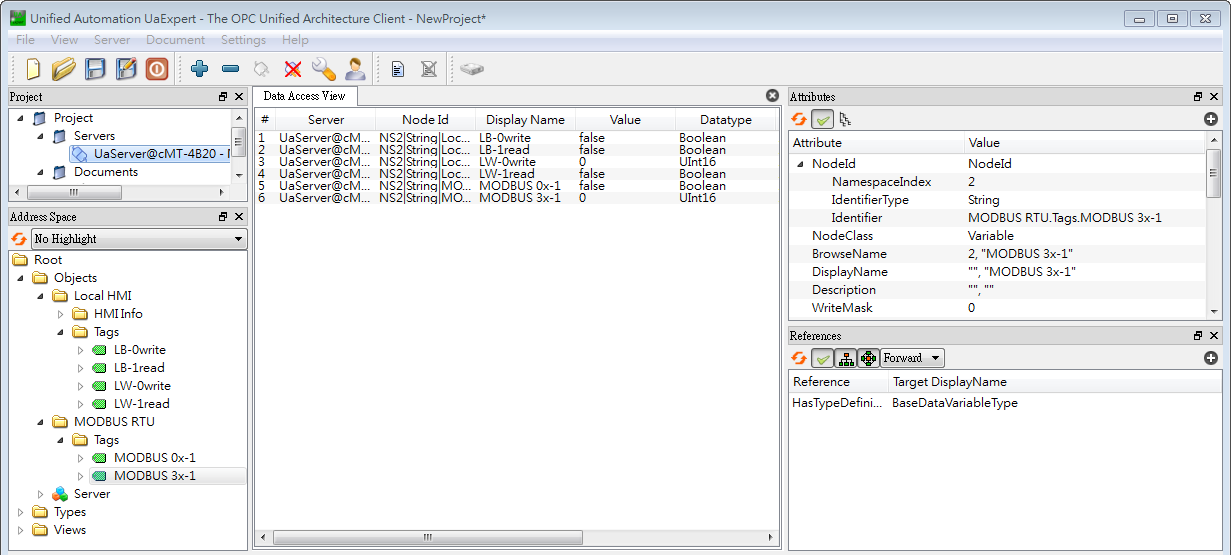OPC UA 伺服器
概述
OPC UA(統一架構)是一種常用於工業自動化領域的通訊技術。OPC UA具有跨平臺互操作性、統一訪問、標準化通訊和安全性等特點。在這種架構中,具有內建OPC UA伺服器的cMT系列HMI型號在通訊閘道器中起著關鍵作用,允許OPC UA客戶端透過訂閱標籤來接收HMI或PLC資料的實時更新。這種新的架構可以幫助您實現垂直整合。
硬體和軟體要求:
- HMI型號:cMT-G01、cMT3151
- 軟體:EasyBuilder Pro V5.06.01或更高版本
- 推薦的OPC UA客戶端:Unified Automation UaExpert
Weintek HMI和OPC UA
以下是OPC統一架構的示例。在這種架構中,使用者可以在cMT-iPC15上執行SCADA作為OPC UA客戶端,並使用它來訪問在cMT系列型號上實現的OPC UA伺服器中的資料,以接收連線到HMI的PLC的資料更新,而不管實現的PLC品牌是哪個。
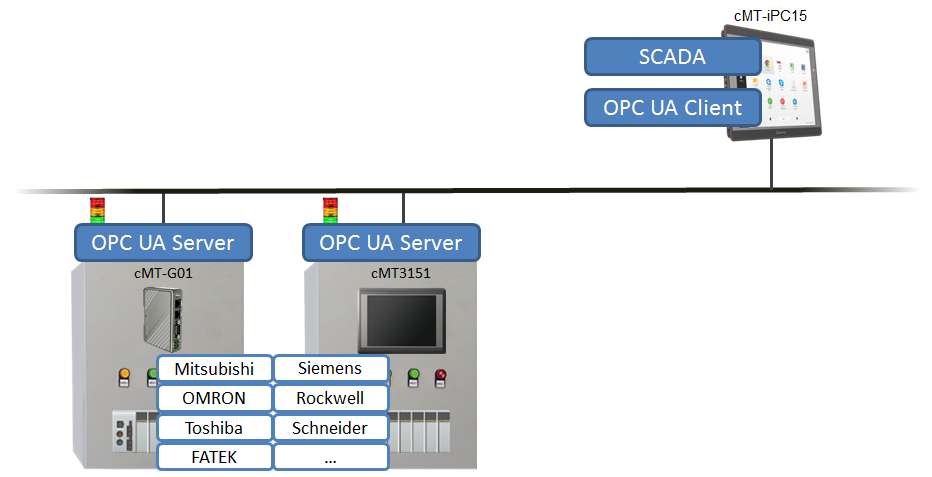
EasyBuilder Pro設定
在EasyBuilder Pro中,點選[IIoT] » [OPC UA 伺服器]來設定專案中的OPC UA伺服器。
伺服器設定
首先,必須輸入OPC UA伺服器資訊。選擇[啟用]覈取方塊以開啟OPC UA伺服器設定對話方塊,並在註釋和伺服器名稱欄位中輸入資訊。對於其餘部分,通常使用預設設定即可。可以為客戶端配置安全策略。EasyBuilder Pro提供與OPC UA伺服器相關的系統標籤,使使用者能夠監視伺服器併發出命令。
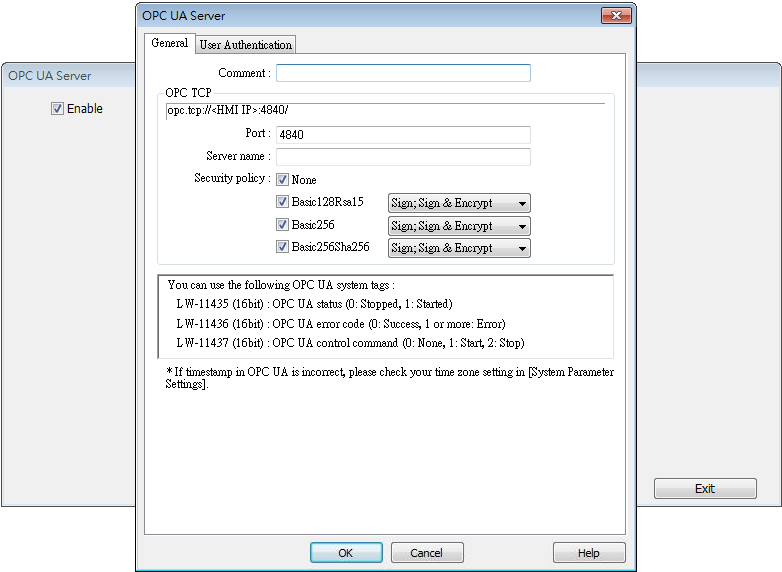
使用者身份驗證選項卡用於選擇客戶端登入時使用的身份驗證方法。可以授予匿名登入的瀏覽、讀取和寫入許可權。使用者名稱和密碼與系統引數設定»安全選項卡中指定的使用者名稱和密碼相同。當客戶端使用使用者名稱和密碼登入時,許可權將授予系統引數設定中指定的安全類。
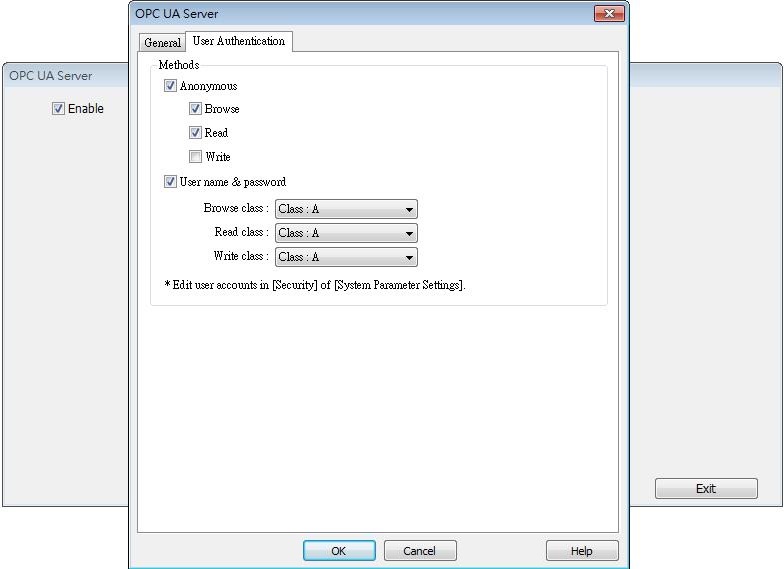
標籤
設定完OPC UA伺服器後,轉到標籤設定。客戶端程式可以使用標籤來監視和控制OPC UA伺服器。如下圖所示,LB-0是可讀寫的位地址,而LB-1是可讀的位地址。類似地,LW-0是可讀寫的字地址,而LW-1是可讀的字地址。
可以新增的可監視和控制的地址不限於本地HMI地址;還可以新增PLC地址。
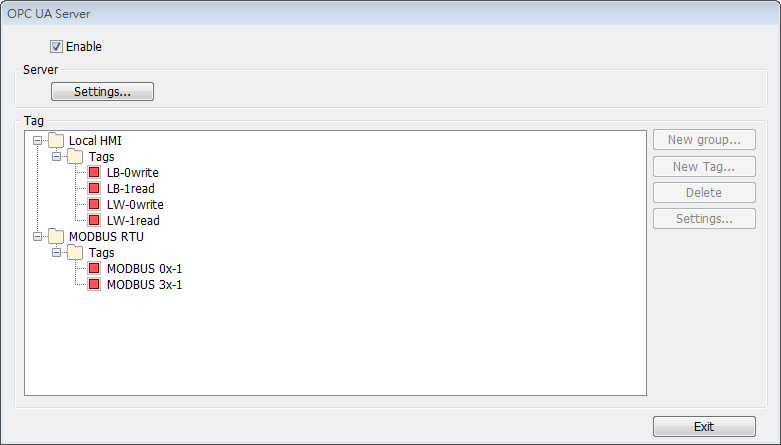
下載專案
在將專案檔案下載到HMI時,請確保HMI的時間和時區設定正確。否則,客戶端程式可能無法進行身份驗證,並且由於證書有效時間不正確而導致通訊失敗。如果發生這種情況,唯一的解決方法是將HMI設定恢復為預設設定。
OPC UA客戶端
Unified Automation UaExpert(下載連結)
首次使用此客戶端軟體時,請按照以下設定步驟進行操作:
點選“確定”建立一個應用程式例項證書,以識別您的安裝。
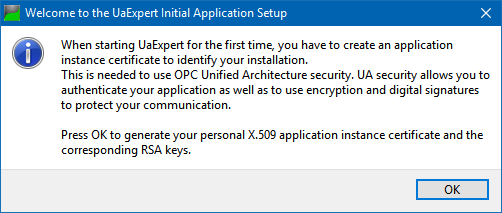
填寫組織和組織單位。
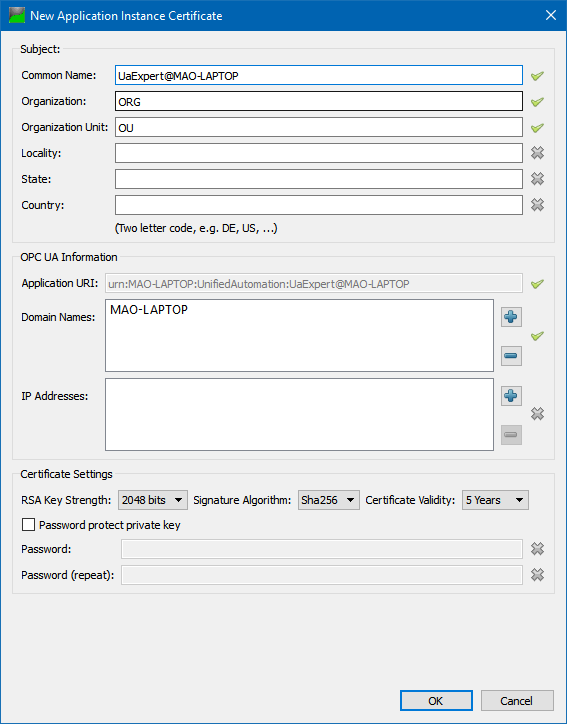 然後,連線到OPC UA伺服器。
然後,連線到OPC UA伺服器。點選[伺服器] » [新增]新增伺服器。
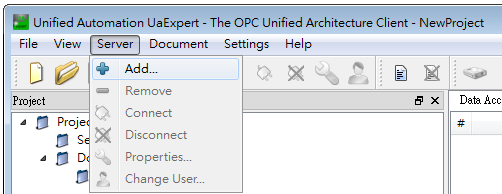
雙擊[雙擊以新增伺服器],輸入OPC UA伺服器URL。IP地址是HMI的IP地址。
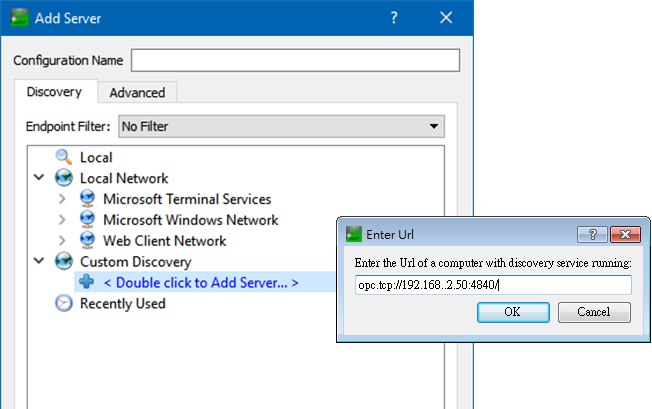
OPC UA伺服器資訊顯示在此選項卡中,可以指定身份驗證方法。
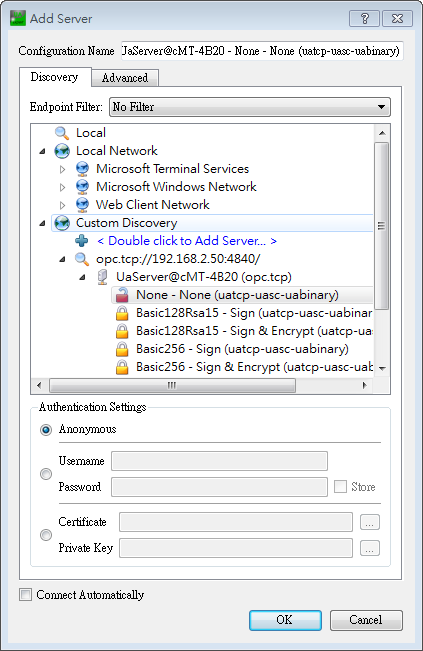
當顯示以下訊息視窗時,點選[是]。

單擊滑鼠右鍵,然後點選[連線]以連線到OPC UA伺服器。
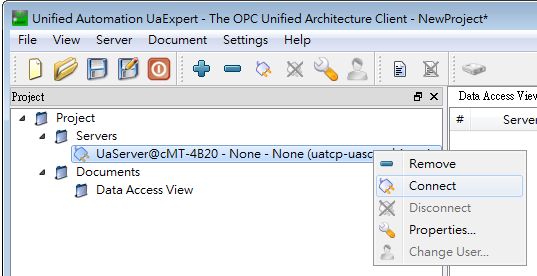
選擇“信任伺服器證書”並點選[繼續],完成設定。
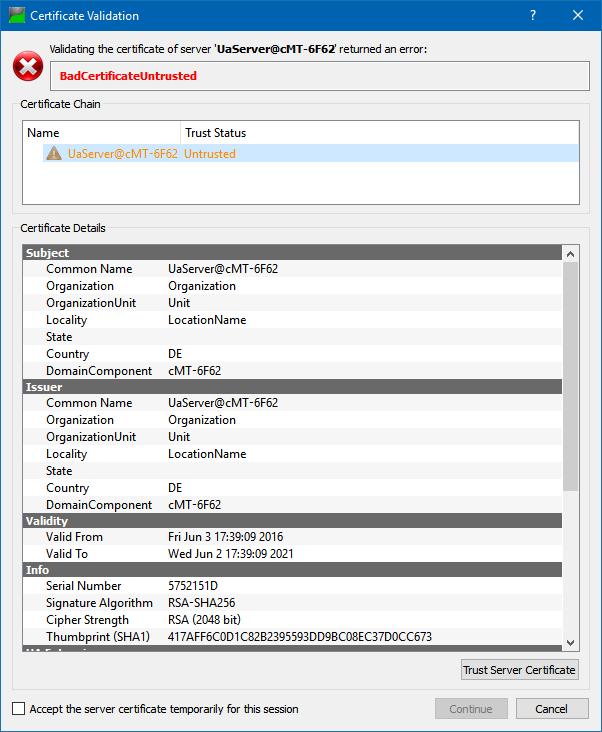
訪問OPC UA伺服器資料
完成連線設定後,可以在地址空間欄位中找到地址資訊。HMI引數位於HMI Info資料夾中,使用者定義的標籤位於Tags資料夾中。透過將標籤拖動到資料訪問檢視欄位中,可以檢視標籤的詳細資訊並更改其值,只要它是可寫地址,例如前面提到的LB-0和LW-0。只讀地址的值,如LB-1和LW-1,無法更改。
